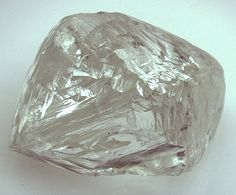tintinnid attempts to undermine the design inference by noting:
Just because something can be made by man does not mean that all occurrences in nature must have an intelligent origin.
Agreed. You have been one of our most vocal critics in recent weeks. But that you would write this statement indicates you have a seriously flawed understanding of the ID project. I recommend that before you spend further hours on this website criticizing ID, that perhaps you might try to understand it first. Then, when you go to criticize it, you will be actually criticizing ID, and not some distorted caricature of ID you’ve made up.
You see, Tin, it does no good to criticize a distorted caricature of ID. Say you were in a gunfight and opposing you down the street were a life-sized cardboard image of the bad guy and the actual bad guy. Which one would you shoot at? I hope you see my point. Go study ID Tin until you actually understand it. Then, if after your studies you still want to criticize it, by all means do so. But if you continue to shoot at the cardboard image, don’t be surprised when you look down and find your arguments are lying on the ground bleeding. For example:
Humans can make diamonds, but not all diamonds are of intelligent origin.
This statement is certainly true as far as it goes but it misses the point. Here are pictures of two diamonds. One is “rough,” i.e., it was shaped by natural forces. The other one was is “finished,” i.e., it was shaped by intelligent forces. Can you tell which is which?
Just because DNA carries information does not mean that it must be of intelligent origin.
You are certainly correct that natural forces (chance/law) can create tiny strings of information. For example, the famous Shakespeare monkey simulator after simulating monkeys typing 10^35 pages, got this string (the longest it ever got) from Act I, Scene I of Timon of Athens:
Poet. Good day Sir
For comparison purposes, here are the first few lines from that scence.
Poet. Good day, sir.
Painter. I am glad you’re well.
Poet. I have not seen you long: how goes the world?
Painter. It wears, sir, as it grows.
Poet. Ay, that’s well known:
But what particular rarity? what strange,
Which manifold record not matches? See,
Magic of bounty! all these spirits thy power
Hath conjured to attend. I know the merchant.
Painter. I know them both; th’ other’s a jeweller.
Take a good look at this number: 10^35. It is unimaginably huge. Yet in all of those pages a blind search was able to come up with only a snippet of Shakespeare.
Now, here’s my question for you. Is the DNA code more like the snippet within the reach of a blind search or is it more like the complete works of Shakespeare?

